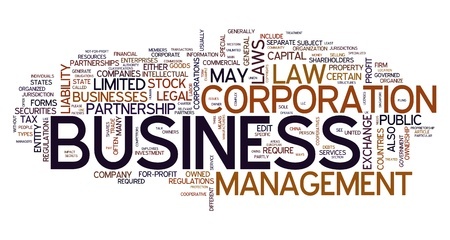So you’ve taken the plunge. You’ve made the decision to start an internet based business, which means you need to start thinking about business entities.
Let’s be honest, in today’s world, there is really nothing more exciting and thrilling than the idea of becoming your own boss, controlling your own destiny, and building your “freedom business”.
Seriously, who doesn’t want to work from the comfort of their own living room (or anywhere on earth so long as you have an internet connection), sipping coffee in their pajamas, with only a laptop and cellphone, working 2 hours a day? (week?)
It’s exciting. It’s cool. And it’s in vogue right now. But at the end of the day, there are a lot of legal hiccups that can get in your way and derail your dreams.
For starters, let’s consider the main thrust of this blog post – your choice of business entity.
Which Business Entitles should you consider?
There are four main legal entities that will satisfy the needs of most internet entrepreneurs – sole proprietorship, general partnership, corporation, and limited liability company. Let’s take these one-by-one. For each, I’ll briefly discuss what they are, their main advantages, their main disadvantages, and who they would work well for. (UPDATE: This post only discusses Sole Proprietorships and Partnerships. Part 2 of this post discusses corporations and LLC's)
Sole Proprietorship
What it is? A sole proprietorship is the simplest type of business entity there is. It’s essentially the default choice if you don’t elect some other entity. Anyone who is running a business but hasn’t filed documentation with their local secretary of state to incorporate is going to be considered a sole proprietor. Notwithstanding, you may still need to apply for and receive certain licenses and permits to do business, depending on your jurisdiction (that’s a legal way to say “the city/state where you conduct business”).
Main Advantages The biggest advantage to operating a sole proprietorship is that there is no cost (other than permits/licenses mentioned above) and no paperwork to file. The owner of the proprietorship will report their income or losses on their personal tax return under Schedule C of Form 1040.
Main Disadvantages As a business owner, you are subjected to unlimited personal liability for the debts and other liabilities associated with your business. So if you were to be sued by a creditor for debts you took out for your business, or for liability attributed to a course you sold online, then you stand to lose not only your business assets, but your personal assets as well, including your house, car, bank accounts, etc.
Who would make a good sole proprietor? In my opinion, there are not many good candidates to be sole proprietors. The main reason for this is the unlimited personal liability. Even if you think there is no chance you would ever be sued, and you don’t have any business debt, I still recommend that most online entrepreneurs form some type of corporate entity.
General Partnership
What it is? A general partnership is essentially a sole proprietorship operated by two or more people. For example, lets say you and your best friend (not your spouse) decide to start a business selling products on Amazon. If you don’t elect a formal business entity, you have basically formed a general partnership and you may not even know it. In those situations, you could still receive some legal protection in the form of the Uniform Partnership Act (UPA) or Revised Uniform Partnership Act (RUPA), which has been adopted in all states except Louisiana (the RUPA has only been adopted in 37 states, and varies by state).
Main Advantages Again, like a sole proprietorship, it is inexpensive to start up and costs virtually nothing to maintain. Each partner will report their share of the income or loss from the partnership on their personal tax return. You don’t need to draft a partnership agreement to form a partnership, but it is highly recommended because of the informal nature of the entity.
Main Disadvantages You can be in a partnership and not even know it. In addition, you can be held personally liable for business debts, even if you didn’t personally incur the debt or even know it existed. Without a partnership agreement in place, you could be subjected to virtually unlimited personal liability for the debts and actions of your partners.
When is a general partnership a smart idea? Rarely. Without a partnership agreement in place, you can still rely on the UPA or RUPA, depending on your state, but we still discourage clients from proceeding without an agreement. However, even with a good partnership agreement in place, you will still be subjected to personal liability for your share of the debts of the partnership.
Tomorrow we’ll take a look at corporations and limited liability companies.
DISCLAIMER: It is entirely possible that you will need professional advice concerning what legal entity is best suited for your online business. This blog is a resource guide for educational and informational purposes only and should not take the place of seeking out the advice of a lawyer in your jurisdiction. None of the information provided in this post constitutes legal advice or creates and attorney-client relationship. If you would like to speak with an attorney, please schedule a paid consultation by clicking here.


